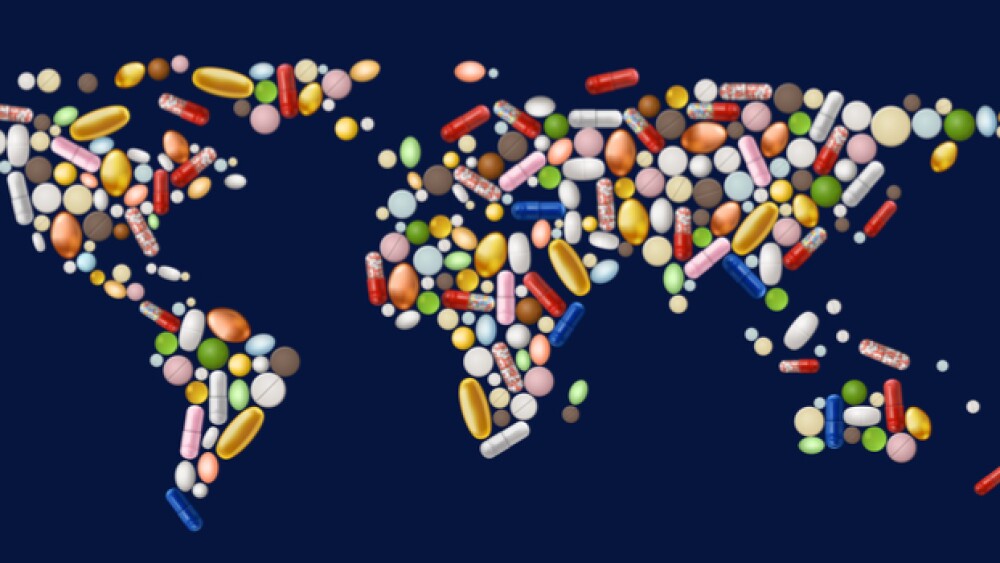In addition to the planned BioNTech IPO, many other pharma and biotech companies in Europe, Asia and elsewhere shared news for the week.
Germany-based BioNTech, the largest privately-held pharmaceutical company in Europe, is planning to go public.
The company aims to file for an $800 million IPO later this year or in the beginning of 2020. The company has retained Bank of America and J.P. Morgan to coordinate with the planned listing. The public offering would raise funds to support the company’s four broad technology platforms, including an mRNA-based platform that is focused on oncology and infectious diseases, as well as a cell and gene therapy platform.
In addition to the planned BioNTech IPO, many other pharma and biotech companies in Europe, Asia and elsewhere shared news for the week.
Akili Interactive -- Osaka, Japan-based Akili announced a strategic partnership with Shionogi to develop and bring to market digital therapeutics in key markets in Asia. The partnership, valued at $125 million, is across multiple products and indications, such as ADHD and autism spectrum disorder. The partnership covers two countries, Japan and Taiwan. The two products are AKL-T01 and AKL-T02. AKL-T01 is currently under review with the U.S. Food and Drug Administration (FDA) as a potential digital treatment for children with attention-deficit/hyperactivity disorder (ADHD); AKL-T02 is currently in late-stage development as a potential digital treatment for cognitive dysfunction and related symptoms in children with Autism Spectrum Disorder. The digital treatments are delivered through immersive action video game experiences.
Owlstone Medical – Diagnostics company Owlstone partnered with The University of Manchester on a three-year study of asthma. Owlstone, which is developing a breathalyzer for applications in early disease detection and precision medicine, awarded the university £249,950 to fund a three-year study. Within the study, Owlstone Medical will be deploying its novel Breath Biopsy platform to collect breath samples from asthmatic patients and healthy controls, which will then be analyzed to identify breath-based biomarkers for the definitive diagnosis of asthma and to guide effective front-end treatment decisions. The hope is to create a stronger diagnostic test for asthma and whether or not the individual’s condition is related to the large or small airways. The project has several aims, including using breath-based biomarkers and measures of small airway function to enable the rapid, accurate and low-cost diagnosis and monitoring of asthma; to better classify different forms of asthma, their progression, and effect on airway inflammation; and to predict early if someone is likely to respond to ICS treatment.
Sigrid Therapeutics – Stockholm-based Sigrid and Crown CRO initiated the STAR clinical trial to test the efficacy and safety of the orally-administered medical device, SiPore15. The goal of this clinical trial is to demonstrate an improvement in measurements of metabolic disorder in patients with prediabetes and newly diagnosed untreated type 2 diabetes. Sana Alajmovic, co-founder and CEO of Sigrid Therapeutics said prediabetes is a “serious medical condition” characterized by elevated blood sugar levels which not only increases the risk of developing type 2 diabetes but also getting a heart attack and stroke. Alajmovic said the company anticipates the trial will demonstrate SiPore15’s therapeutic potential to support its continued clinical advancement towards regulatory approval as the first and only orally ingested medical device for the treatment of prediabetes.
Oncopeptides AB – Stockholm-based Oncopeptides AB presented data from its Phase II HORIZON study and Phase I/II ANCHOR study evaluating the company’s novel candidate melflufen, a peptide-conjugated alkylator at the 2019 American Association for Cancer Research (AACR) annual meeting. Data demonstrate tolerability and high level of activity associated with melflufen in relapsed/refractory multiple myeloma (RRMM) patients. Melflufen’s novel mechanism of action works by eliciting increased cytotoxicity in target multiple myeloma (MM) cells and substantially reduced off-target cell toxicity.
AbCellera -- AbCellera announced a two-year agreement with the Bill & Melinda Gates Foundation to help accelerate global health research. Funding totaled $4.8 million and will be used to support a series of scientific collaborations between AbCellera and Gates Foundation-funded scientists working on the prevention and treatment of high-priority infectious diseases. The target diseases include HIV, malaria and tuberculosis. This is the second collaboration between the two organizations. In 2017, AbCellera worked with the Gates Foundation on the discovery of high-affinity monoclonal antibodies against 10 biomarkers associated with Mycobacterium tuberculosis (Mtb) infection, the bacteria responsible for tuberculosis. The resulting antibodies were instrumental in the successful development of high-sensitivity diagnostic tests.
GENFIT – France-based GENFIT was cleared by the FDA for a Phase II trial evaluating elafibranor in children and adolescents with non-alcoholic steatohepatitis (NASH). It is the first NASH pediatric trial based on compelling Phase II clinical data in adults. The data showed efficacy on NASH resolution without worsening of fibrosis. Elafibranor also showed a beneficial cardiovascular profile, including a reduction of LDL, TG, HDL and improved insulin sensitivity, which is known to be important for NASH patients. Non-Alcoholic Fatty Liver Disease, or NAFLD, has become the most common liver abnormality diagnosed in children and adolescents and is associated with insulin resistance and hypertriglyceridemia. Data collected between 1988 and 2010 in more than 8,000 American children and adolescents have shown a tripling in the rates of NAFLD from 3.3 percent to 10.1 percent.





